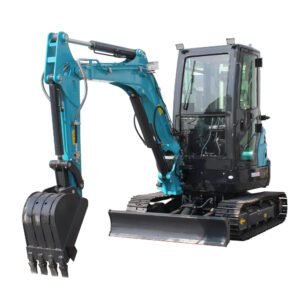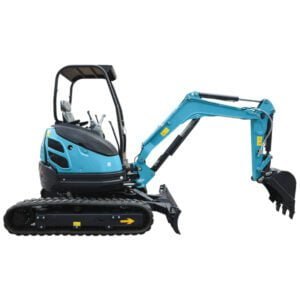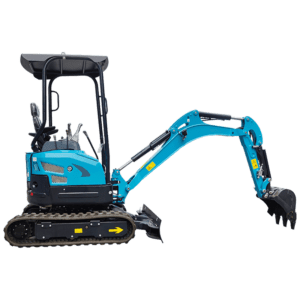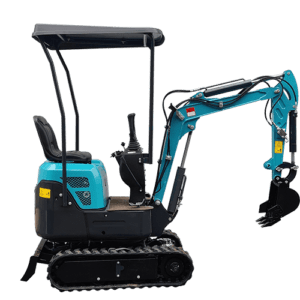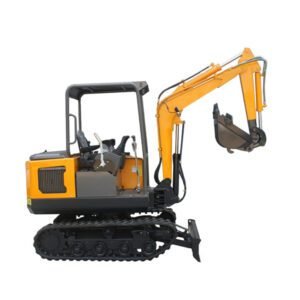E-mail: [email protected] WhatsApp: 8618266768780
Comment choisir les dents d'excavatrice adaptées à votre travail
Bienvenue sur mon blog !
Avant de plonger dans le contenu, j'aimerais que vous me rejoigniez sur mes plateformes de médias sociaux où je partage plus d'informations, interagis avec la communauté et publie des mises à jour. Voici comment vous pouvez me contacter :
Facebook : https://www.facebook.com/profile.php?id=100072217509763
LinkedIn : https://www.linkedin.com/company/74949059/admin/dashboard/
YouTube :www.youtube.com/@tractormanufacturer-lc5qz,www.youtube.com/@excavatormanufacturers-sn9hk
TikTok : www.tiktok.com/@tractormanufacturer, www.tiktok.com/@excavatormanufacturers
Commençons maintenant notre voyage ensemble. J'espère que vous trouverez le contenu ici instructif, engageant et utile.
Les dents d'excavatrice jouent un rôle essentiel pour garantir les performances, l'efficacité et la durabilité de votre excavatrice. Il est essentiel de sélectionner les dents d'excavatrice adaptées à votre travail spécifique pour obtenir des résultats optimaux et minimiser l'usure. Dans ce guide complet, nous explorerons tout ce que vous devez savoir pour choisir les dents d'excavatrice adaptées à votre travail, y compris les considérations clés, les différents types de dents et des conseils pratiques pour maximiser leur durée de vie.
Table des matières
- Introduction
- Importance of Choosing the Right Excavator Teeth
- Factors to Consider When Selecting Excavator Teeth
- H3: Material of Excavator Teeth
- H3: Job Type and Ground Conditions
- Types of Excavator Teeth and Their Applications
- H3: General-Purpose Excavator Teeth
- H3: Rock Teeth for Excavators
- H3: Tiger Teeth for Excavators
- Excavator Teeth Size and Compatibility
- Table: Excavator Teeth Selection Guide Based on Ground Type and Job
- How to Extend the Lifespan of Your Excavator Teeth
- Conclusion
- FAQ
Introduction
Excavators are powerful machines used in construction, mining, landscaping, and various other industries. One of the most important components of an excavator is its teeth. The right excavator teeth can significantly enhance productivity, digging efficiency, and machine longevity. However, with so many options available, selecting the right type of excavator teeth for a specific job can be overwhelming.
This article provides an in-depth guide to help you make the right choice when it comes to excavator teeth, ensuring you get the best performance and value for your investment.
Importance of Choosing the Right Excavator Teeth
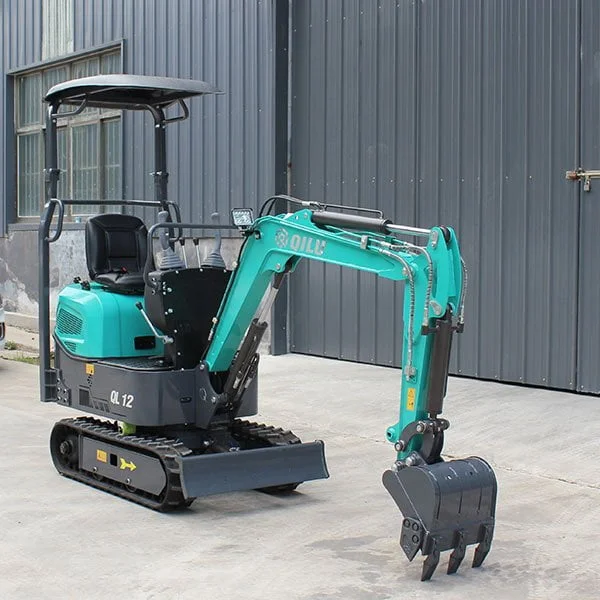
Choosing the correct excavator teeth impacts multiple factors, including:
- Performance: The right teeth improve cutting power and reduce resistance when digging through various materials.
- Durabilité: Properly selected teeth are less prone to wear, breakage, or dulling, reducing the frequency of replacements.
- Rentabilité: Using the wrong teeth can result in higher operational costs, either through increased fuel consumption or more frequent replacements.
Investing time in selecting the appropriate excavator teeth is crucial for the efficiency of your job site.
Factors to Consider When Selecting Excavator Teeth
When choosing excavator teeth, several factors must be considered to ensure they are suitable for the task at hand. These factors include the material, job type, and ground conditions. Let’s delve deeper into these aspects.
Material of Excavator Teeth
Excavator teeth are made from different materials, each offering various levels of durability, flexibility, and performance. The most common materials include:
- Acier au carbone: Best suited for general-purpose tasks but prone to wear in harder conditions.
- Acier allié: Offers higher strength and toughness, making it ideal for more demanding tasks.
- Chromium-Molybdenum Steel: Known for its extreme hardness, this material is perfect for excavating rocky and abrasive materials.
The choice of material is directly linked to the job and the type of material you need to excavate.
Job Type and Ground Conditions
The type of job and the material being excavated are the most critical considerations when choosing excavator teeth. Common ground conditions include:
- Soft or Loamy Soil: Requires teeth with a wide profile to provide efficient digging without clogging.
- Hard, Rocky Terrain: Requires robust, sharp teeth designed for cutting through rock and other abrasive materials.
- Frozen Ground or Asphalt: Needs hardened teeth to withstand the impact and wear caused by breaking up tough surfaces.
Types of Excavator Teeth and Their Applications
Different types of excavator teeth are designed for specific applications. Understanding the various options available will help you make a more informed decision.
General-Purpose Excavator Teeth
General-purpose excavator teeth are designed for versatility. They work well in soft to moderately dense soils and are ideal for everyday tasks like digging, trenching, and loading. These teeth are usually made from carbon steel and feature a wider design to maximize ground contact.
Applications:
- Trenching in loose or loamy soil
- Loading material into trucks
- General digging tasks
Rock Teeth for Excavators
Rock teeth are specialized excavator teeth designed for tough, abrasive materials such as rock, gravel, and clay. These teeth are sharper and more robust than general-purpose teeth, often made from alloy steel or other high-strength materials.
Applications:
- Breaking through rock and boulders
- Excavating in gravel pits
- Digging in clay-heavy ground
Tiger Teeth for Excavators
Tiger teeth have an aggressive design, with sharp, pointed tips that are perfect for penetrating hard-packed earth, frozen ground, or compacted clay. These excavator teeth are also effective in demolition tasks due to their ability to cut through tough materials.
Applications:
- Frozen ground excavation
- Travaux de démolition
- Breaking up compacted soil
Excavator Teeth Taille et compatibilité
One essential aspect when selecting excavator teeth is ensuring they are the right size and compatible with your machine. Each excavator model may have specific teeth sizes, so it’s important to refer to your equipment’s manual for guidance.
The teeth should fit securely onto the bucket to ensure optimal digging performance. Loose or ill-fitting teeth can cause operational issues, reduce efficiency, and even lead to damage to the excavator bucket.
Excavator Teeth Selection Guide Based on Ground Type and Job
To simplify your decision, the table below provides a quick guide for choosing the right excavator teeth based on ground type and job requirements.
| Ground Type | Recommended Teeth Type | Ideal Material | Type d'emploi |
|---|---|---|---|
| Soft/Loamy Soil | General-Purpose Teeth | Acier au carbone | Trenching, Digging |
| Hard/Rocky Terrain | Rock Teeth | Acier allié | Breaking Rock, Quarrying |
| Frozen Ground | Tiger Teeth | Chromium-Molybdenum | Frozen Ground Excavation |
| Asphalt/Concrete | Sharp Chisel Teeth | High-Strength Alloy | Demolition, Roadwork |
| Clay/Compacted Soil | Tiger Teeth | High-Strength Alloy | Compact Soil Penetration |
This table helps you quickly identify the best excavator teeth for your specific needs based on the job and ground type.
How to Extend the Lifespan of Your Excavator Teeth
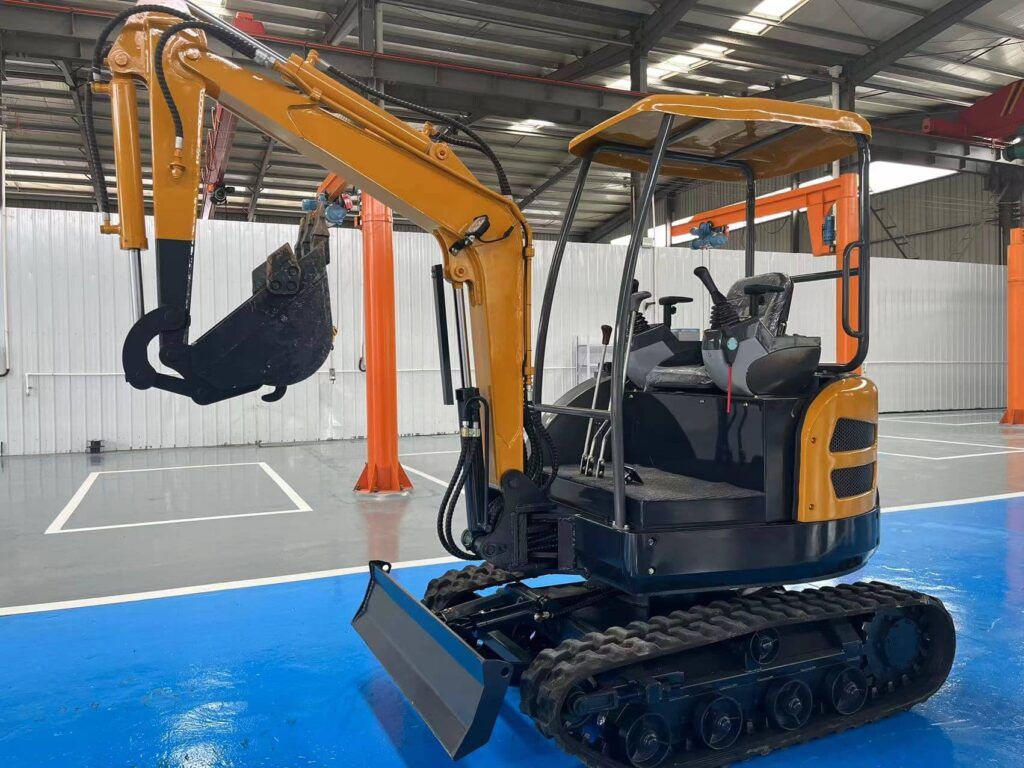
The lifespan of excavator teeth depends on how well they are maintained and used. Here are some tips for prolonging the life of your excavator teeth:
- Proper Fit: Ensure the teeth are securely fastened to the bucket. Loose teeth wear out faster and may damage other parts of the excavator.
- Inspection régulière: Frequently check the teeth for wear, cracks, or signs of damage. Replace any worn teeth promptly to avoid compromising performance.
- Correct Usage: Avoid using general-purpose teeth for rock-heavy jobs. Using the wrong teeth for the job accelerates wear.
- Sharpening: If your excavator teeth become dull, have them sharpened to restore their cutting efficiency.
These steps will help you get the maximum performance and lifespan from your excavator teeth, reducing the need for frequent replacements.
Conclusion
Selecting the right excavator teeth is essential for optimizing the performance and efficiency of your excavator. By considering factors such as material, job type, and ground conditions, you can make an informed decision that enhances productivity and reduces wear. Additionally, understanding the different types of excavator teeth, such as general-purpose teeth, rock teeth, and tiger teeth, will help you choose the most suitable option for your specific task.
Maintaining your excavator teeth through regular inspections and proper usage will extend their lifespan, making your investment last longer.
FAQ
1. How often should I replace excavator teeth?
The frequency of replacing excavator teeth depends on the type of material you are excavating and the intensity of use. However, regular inspections will help you determine when they are worn down and need replacing.
2. Can I use the same excavator teeth for all types of ground conditions?
No, different ground conditions require different types of excavator teeth. For example, soft soil requires wider teeth, while rocky terrain needs sharp, robust teeth.
3. How do I know which size of excavator teeth is compatible with my machine?
Refer to your excavator’s manual to find the recommended teeth size. Alternatively, consult with the manufacturer or supplier for guidance.
4. Can I sharpen excavator teeth?
Yes, sharpening can extend the life of your excavator teeth, especially if they become dull over time. However, excessively worn teeth should be replaced.
5. Are alloy steel teeth better than carbon steel teeth?
Alloy steel teeth are more durable and perform better in tougher conditions, such as rock-heavy jobs, while carbon steel teeth are better suited for general-purpose use.
À propos de nous
Shandong Qilu Industrial Co., Ltd. est un fabricant et exportateur professionnel intégrant le développement et la production d'excavatrices, de chargeurs et de tracteurs. Nous fournissons le meilleur service, absolument.
Messages récents
Démo vidéo
-1.png)
Contactez-nous aujourd'hui !
Une question, un devis ou une demande ? Cliquez sur le bouton pour envoyer le message.
Qilu Industrial sera toujours là pour vous aider.

